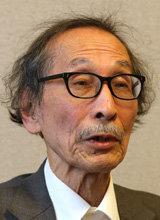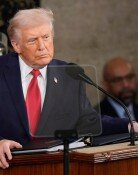‘S. Korea is an inseparable neighbor,’ says Japanese historian
‘S. Korea is an inseparable neighbor,’ says Japanese historian
Posted July. 30, 2019 07:29,
Updated July. 30, 2019 07:29

“It is a measure that regards South Korea as an enemy. It should immediately be withdrawn,” said Haruki Wada, emeritus professor at Tokyo University during an interview with The Dong-A Ilbo. When asked about Japan’s toughening export regulations against South Korea, the 81-year-old historian said it could take a toll on the Korean semiconductor industry.
Seventy-five Japanese intellectuals, including scholars, lawyers, and civic activists as well as Professor Wada opened a website, peace3appeal.jimdo.com, and posted a statement titled, “Is South Korea our enemy?” They are asking those who share the same opinion to sign the statement until August 15. This is a move that has not been seen inside Japan when its government reacted strongly against the South Korean Supreme Court’s forced labor ruling.
“Japanese intellectuals actively discussed about the forced labor ruling right after it was made last year. But we couldn’t issue a statement back then as we failed to narrow the differences,” said Professor Wada, who is leading such move. “This time, however, everyone was in agreement that Japan should withdraw its export restrictions.”
Tokyo is refusing Seoul’s proposal to discuss the issue through diplomatic channels. “Prime Minister Shinzo Abe has been completely ignoring South Korea, from his administrative policy speech to the G20 summit,” Wada said. “It is as if he is saying he doesn’t want to talk with South Korea.” The professor went on to stress that South Korea, which is based on freedom and democracy, is an inseparable neighboring country, adding, “Prime Minister Abe should stop considering South Korea as an enemy and resume diplomatic talks.”
About Tokyo’s demand to create an arbitration committee regarding the forced labor ruling, Wada pointed out that back in 2011, Japan also refused to seek arbitration with regard to the issue of comfort women.
“Wartime forced labor suits are civil action and the defendant is a Japanese company. It is the Japanese company, which should decide how to respond to the ruling,” he said. “Tokyo’s intervention made matters complicated and exacerbated the issue to the national level.”
Professor Wada and Japanese intellectuals have been working on the statement since early this month. The statement was supposed to be announced before the national elections but was uploaded online on Thursday due to some delays. A total of 1,627 people signed the statement as of 10 p.m. Sunday.
“I’ve worked on many signature-collecting campaigns,” Professor Wada said. “We are getting signatures very fast this time from people all over the country.”
lovesong@donga.com






![‘부화방탕 대명사’ 북한 2인자 최룡해의 퇴장 [주성하의 ‘北토크’]](https://dimg.donga.com/c/138/175/90/1/wps/NEWS/IMAGE/2026/02/27/133414028.1.jpg)
